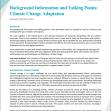

Home gardens support good nutrition: Megha’s Story
One in nine people worldwide do not have enough to eat. Many do not have enough nutritious food. As missionary disciples, we are called to respond to the urgent needs of those who face hunger and malnutrition and to address the root causes of this global crisis. Together, we can lead the way to prevent and end hunger with sustainable farming solutions that increase access to nutritious food in the face of a changing climate.
Like a lot of moms, Megha Singh does her grocery shopping at the nearest market. She often buys spinach and other vegetables to make a special curry that her children love.
But sometimes getting to the market is impossible—the closest is five miles away from the Singh family’s home. They live in a small village in East India on the Malaguni River, and when the river overflows and floods the road, the family’s access to the market is cut off. The Singh family must rely solely on rice from their fields until the water subsides. Because storms are becoming more frequent and severe due to a changing climate, the family’s health and livelihood are at risk.
As part of a disaster preparedness project, Catholic Relief Services is teaching Megha—and others like her who live in remote, vulnerable communities—how to grow a small garden that can withstand storms and provide vegetables for nutritious family meals. By planting seeds in innovative sacks that can be easily moved to higher ground, Megha can grow tomatoes, spinach and other leafy vegetables to ensure her family has reliable access to nourishing food, even during cyclones and floods.
Megha has also learned the importance of proper nutrition—crucial in India where 48% of children under age 5 are not growing or developing as they should as a result of malnutrition. Megha ensures her family gets the nutrients they need to stay healthy by incorporating leafy vegetables from her garden, like spinach, in the family’s daily meals.
“The garden is very helpful because we can immediately harvest vegetables, cook them and feed the children. We can get plenty of nutrition: iron, vitamin A and C, and other vitamins,” Megha says.
With a well-balanced diet, Megha’s son and daughter have a chance to succeed in school—and in life. Megha’s 16-year-old son wants to become a banker one day, while her 12-year-old daughter Priyanka is still dreaming about what she wants to be when she grows up.
Catholic social teaching first and foremost defends the right to life and promotes the dignity of the human person. This right necessitates that each person has enough nutritious food to sustain a life with dignity. As a changing climate contributes to a growing number of people facing hunger and malnutrition around the world, together we can lead the way with innovative solutions to improve access to nutritious food and sustainable livelihoods.




